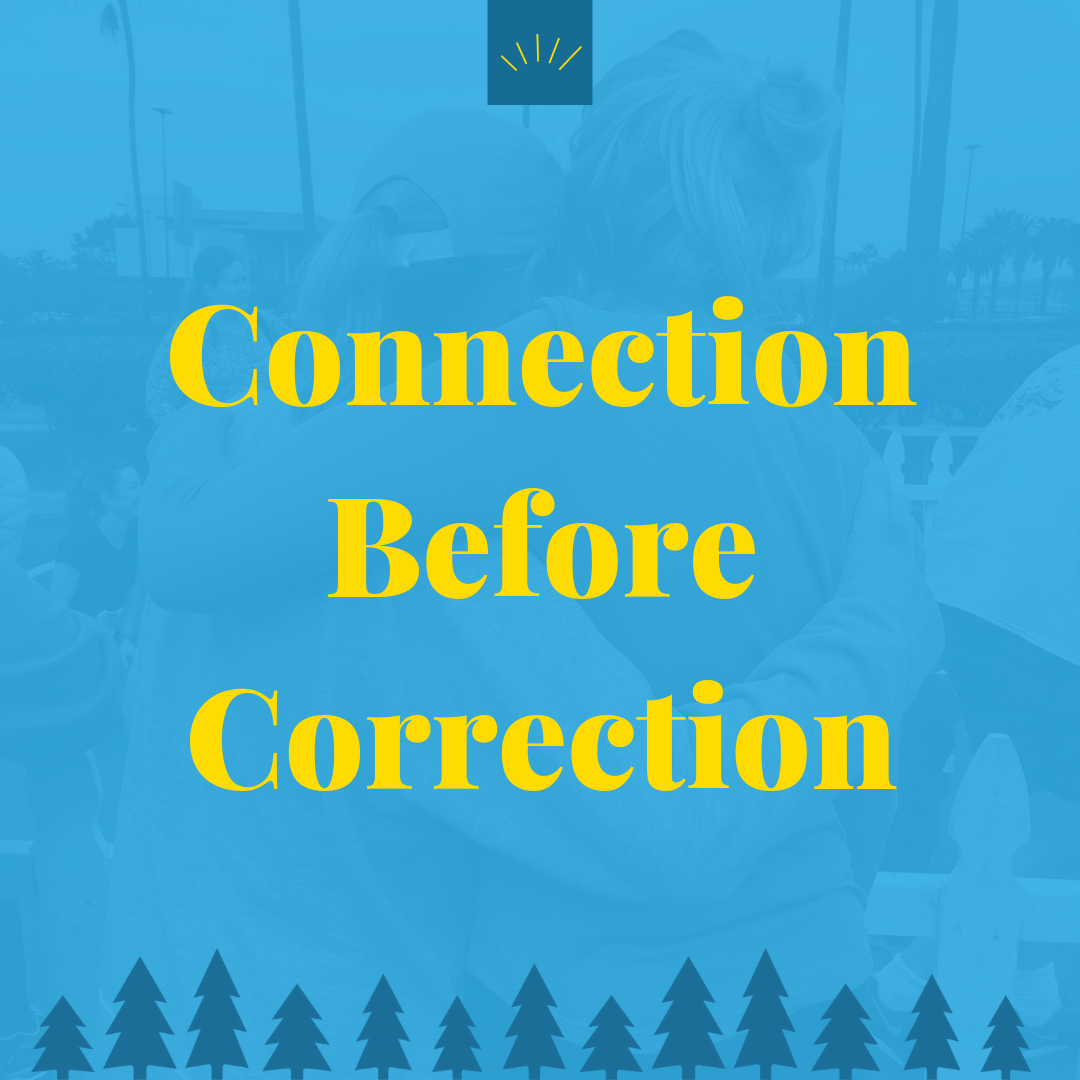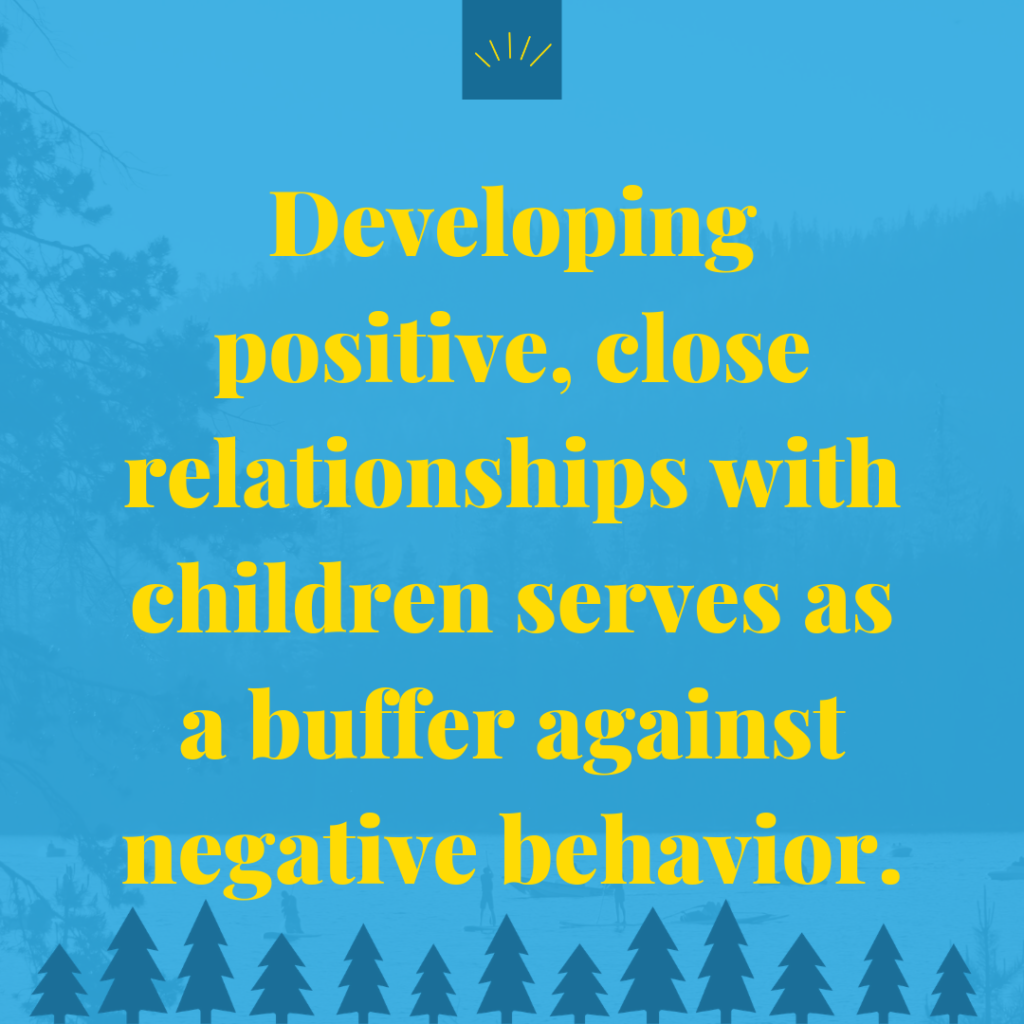
Because I know our counselors may not retain every bit of information covered in training, there are a few concepts I will continue to focus on and share with them throughout the summer. One of those is the importance of connection before correction.
I’m convinced that developing positive, close relationships with children serves as a buffer against negative behavior and puts adults in a better position to correct children when they get off track. Without a positive, bonded relationship, a misbehaving camper will most likely not respond to correction. I think repeat offenders at school are a good example of why correction without connection just doesn’t work.

I’ve never liked the word “discipline” until recently, because the word has such negative connotations. Most of us equate “discipline” with punishment. In fact, discipline derives from the word “disciple” and is supposed to represent teaching or the imparting of knowledge from a mentor or teacher to an apprentice or follower. It sounds so much better when thought of that way, and is similar in that regard to the relationships our counselors build with campers during the summer.
At my camp, we’ve changed the spelling of the word relationship to realationship, because we believe authentic bonding between our counselors and campers, as well as close friendships among our campers, are the most important things that happen at camp.
Here are 10 tips our counselors have learned to put “connection before correction” into practice:
1. Spend time getting to know each camper over the first days at camp. Learn not just their name, but facts about their family, where they’re from, what hobbies and sports they like, etc.
2. Set clear expectations about how everyone in the group will treat each other. Talk about what respect and kindness look like at camp.
3. Check in, eyeball-to-eyeball, with each camper, every day. Ask them open-ended questions about how they’re getting along with others and how they’re feeling, then listen to their responses.
4. Address any concerns, needs, or problems with empathy and don’t ever be dismissive of their feelings, even if you disagree.
5. Frequently tell them about the positive character traits you see in them.
6. Offer growth mindset praise for the effort they put in and the risks they take in trying new things.
7. Focus on positive behaviors you want to see instead of the behavior you are seeing.
8. Catch them doing things right – give specific praise for the positive things you see them doing.
9. When correcting a camper, always focus on and discuss the issue, not the person.
10. Offer frequent high-fives, fist-bumps, thumbs-up, pats on the back, and hugs.
As I often say, I believe the training our counselors get before summer camp begins is extremely applicable to parenting. I hope, whether you’re a camp counselor, a teacher, or a parent, you will choose connection before correction and focus on building a positive realationship with your child as your top priority. I think you’ll be amazed at how better behavior results from a closer, more positive connection between children and the adults who care for them.
Want to learn more? Pick up a copy of Happy Campers: 9 Summer Camp Secrets for Raising Kids Who Become Thriving Adults.
Resources/Related:
10 Parenting Tips from Camp Counselors
Catch Them Doing the Right Thing
